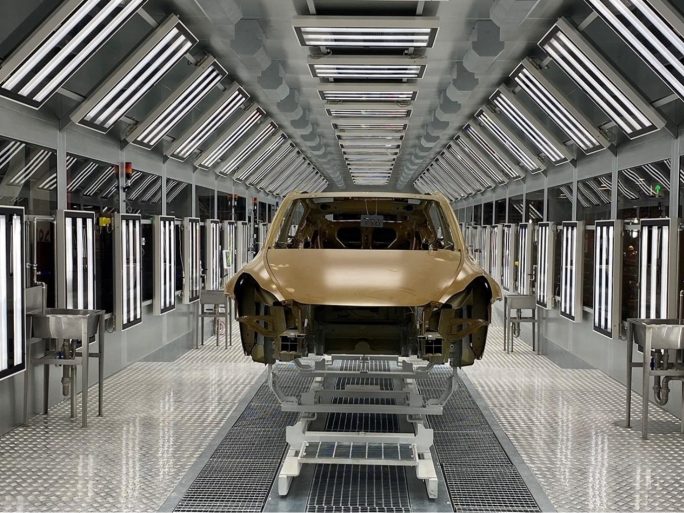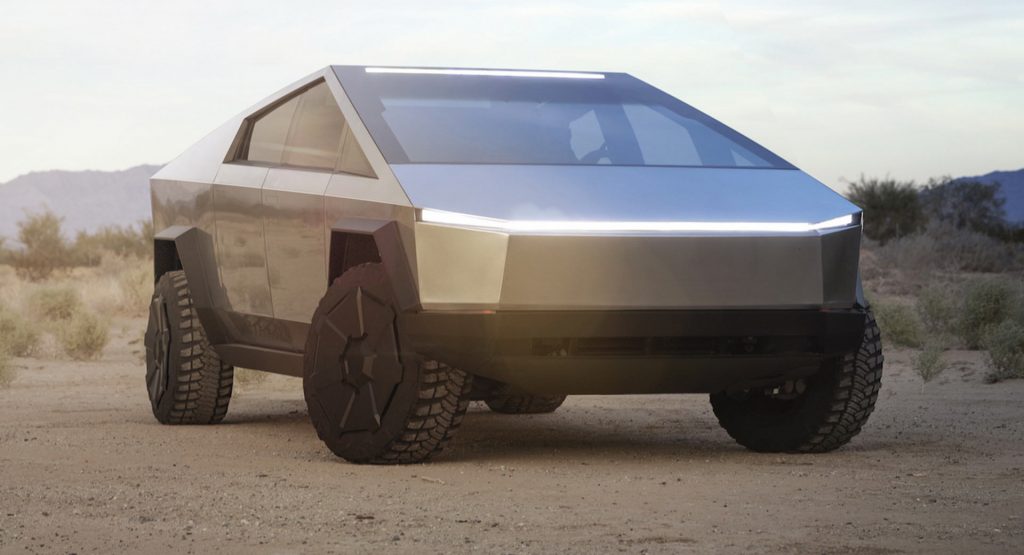Tesla Backs Away From Gigacasting Manufacturing – Report

Tesla retreats from pioneering gigacasting manufacturing process, amid cost cutting and challenges at EV giant
Elon Musk’s Tesla is reportedly retreating from a pioneering manufacturing process that it has previously claimed simplified manufacturing and improved vehicle quality.
Reuters, citing two sources familiar with the matter, reported that Tesla has backed away from an ambitious plan for innovations in gigacasting, its pioneering manufacturing process
The claim comes amid a number of challenges at the Elon Musk run firm. Earlier this week Tesla axed the entire division that ran Tesla’s supercharger business, and also dismissed two senior executives.

Tesla challenges
It came after Tesla had recently posted its biggest revenue drop since 2012, while profits fell over 50 percent amid its ongoing restructuring.
Last month the EV maker had announced its largest-ever round of layoffs, affecting more than 10 percent of staff worldwide (or 14,000 jobs).
The EV giant is reacting to increased competition and waning consumer demand for EVs.
Last month the US transport regulator ordered Tesla to recall thousands of Cybertruck vehicles due to a defect that could cause the accelerator pedal to stick in place when pressed down with force.

Due to a manufacturing defect, the pad may slip off of the accelerator pedal and cause the pedal to become trapped by the interior trim, resulting in unintended acceleration, the National Highway Traffic Safety Administration had warned.
This is not an over-the-air recall, but rather a more expensive physical recall of the cybertruck, and owners are also now complaining of the stainless steel body already rusting.
Another cybertruck was recently ‘bricked’ after the driver failed to put the vehicle into ‘car wash mode’ before taking it through a normal car wash.
Gigacasting retreat?
Now Reuters has reported that Tesla is retreating the gigacasting manufacturing process.
In July 2022 Tesla had released footage of an assembly-line robot removing a still-smoking casting part from one of its immense gigapress machines.
Our huge casting machines enable us to make full-size cars the same way toy cars are made ✌️ pic.twitter.com/pWvW5Ovufo
— Tesla (@Tesla) July 25, 2022
The gigapress, manufactured by Italy’s Idra Group, represents a relatively new approach to car manufacturing in that it allows large sections of the vehicle to be created as a single casting.
It uses huge presses with thousands of tons of clamping pressure to die-cast large sections of the car’s underbody. On a typical vehicle, the underbody can consist of hundreds of individual parts.

Reuters reported that last year, as Tesla developed a new small-vehicle platform, it aimed to punch out the underbody in a single piece.
The long-term goal of gigacasting was to radically simplify manufacturing and slash costs, and while the process does reduce costs over the long-term, it reportedly requires large initial investments.
According to Reuters, Tesla has since halted the gigacasting effort, opting to stick with its more proven method of casting vehicle underbodies in three pieces: two gigacasted front and rear sections and a midsection made of aluminum and steel frames to store batteries, according to the two sources familiar with the matter.
![]()
That is largely the same three-piece method the company has used for its last two new models, the Model Y crossover SUV and the Cybertruck pickup.
The step-back on gigacasting occurred last autumn, the people reportedly said, before Tesla decided in late February to halt development of an all-new affordable car, often called the Model 2, which would have been the first vehicle it built with one-piece gigacasting.